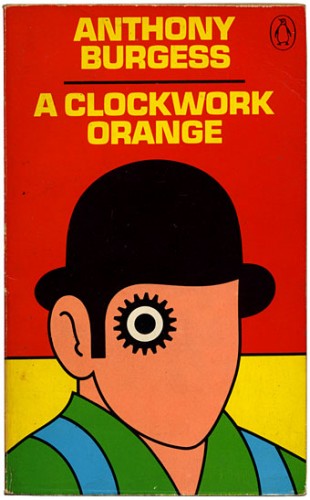3. A Clockwork Orange - Anthony Burgess

It can be fairly easy to forget that A Clockwork Orange is a dystopia as critical focus is so tight upon the characters that the environment gets washed away. The novel is set in the near-future (if you watch the film, the home decor suggests the 1970s) where youth violence has become out of control and the governmental response to it is similarly extreme, if ineffective on a large scale. We follow protagonist Alex, who leads a gang of "droogs" into various nefarious and ultra-violent activities. Their idea of a good night involves casual murder, rape, and the general destruction of other human beings which is then contrasted with Alex's love of classical music. Alex is eventually imprisoned and "rehabilitated" using a very extreme version of aversion therapy. Finding himself essentially castrated of his violent impulses, Alex is taken advantage of and beaten by his previous victims and gang-members, and then used as evidence by anti-governmental groups. Burgess' world preys on the omnipresent fear of ruling institutions (and the adult population) that 'today's youth' are more violent and more apathetic than ever before, and will inevitably bring about the downfall of everything the previous generation deems "civil". Even Alex himself, at the close of the book, ruminates on the outcome of having children and how they may become even more violent than himself.

